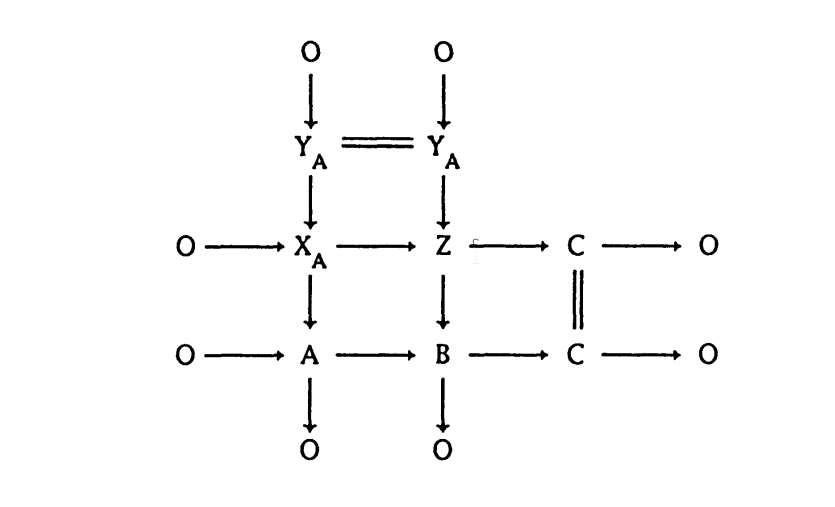I am reading the article “The homological theory of maximal Cohen-Macaulay approximations" by Auslander and Buchweitz (pdf on NUMDAM). In this article, the proof Lemma 3.1 constructs a commutative diagram as follows. We work in an Abelian category $\mathbf{C}$ with a full, additively closed, exact subcategory $\mathbf{X}$ (and a few more hypotheses that don’t seem to be relevant). Given exact sequences
$$0 \rightarrow A \rightarrow B \rightarrow C \rightarrow 0$$
$$0 \rightarrow Y_A \rightarrow X_A \rightarrow A \rightarrow 0$$
where the latter is an $\mathbf{X}$-approximation of $A$, the proof says that since
$$Ext^1(C,X_A) \rightarrow Ext^1(C,A)$$
is an isomorphism, there exists an exact commutative diagram like:

My question is: How to calculate Z? Is it a pull back or push out?
(P.S: The above is in the context of an abelian category, in which the existence of projective and/or injective objects is not assumed.)
